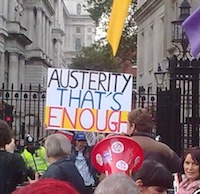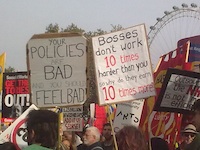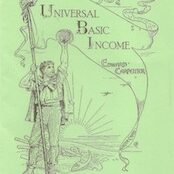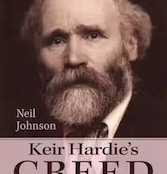The self-declared ‘plebs’ were out in force on Saturday at the TUC’s march against austerity in London, while thousands more took to the streets of Glasgow and Belfast to voice their anger at the coalition government.
‘Plebs Unite’ read one placard. ‘Proud Loud Educated Broke’ said another. ‘I’d rather be a pleb than a toff’ was one of the many intermittent cries heard as 150,000 people walked the familiar route from Victoria Embankment via Whitehall and Trafalgar Square to the bark-chip strewn mud-patch that used to be Hyde Park.
Rather awkwardly called the march for ‘A Future that Works’, the demonstration was both an uplifting and disheartening experience.
On the one hand, it was undoubtedly a significant show of force by the Labour movement, a good-humoured gathering of banners, branches and activists brought by chartered trains and 250 coaches from right across the country. Here were unionists and Labour members together declaring their vocal opposition to the government’s cuts. Brass bands, pipers, loud-hailing chanters, and the wonderfully upbeat PCS group, ‘Drumming up support’, helped to transform a dull autumn day in the capital into a loud and colourful festival.
One man stood defiant in front of the gates at Downing Street, scene of the infamous ‘Plebgate’ affair, holding aloft a board demanding ‘Austerity: that’s enough’ in multi-coloured capitals. He was duly cheered and photographed by the noisy thousands who marched past him, his obvious need to stand up and be counted, to visibly demonstrate his anger, drawing much empathy and appreciation.
On the other hand, however, a Labour movement march was all this was, and, as such, it did as much to illustrate the weakness of the anti-austerity opposition as show its strength.
For a start, it was signifcantly smaller and less broad-based in social and political make-up than the TUC’s ‘March for an Alternative’ held 18 months ago. Yes, there was a message from Danny Boyle, architect of the shrewdly radical Olympic opening ceremony with its subtle ‘people’s story’ – Jarrow Crusaders and all that – and there was a group of Olympic drummers dressed in their revolting peasants outfits. But in truth there were few other signs that the TUC had managed to reach out beyond the threads of its own networks.
In the year and a half since the ‘Alternative’ march, there appears to have been little attempt by the unions – or Labour, for that matter – to knit together the fragments of the widespread opposition to austerity, and that lack of leadership and coherence was all too obvious.
 Perhaps, it’s not so surprising as the only apparent ‘alternatives’ are somewhat uninspiring. Take your pick between Labour’s ‘not so far and not so fast’ approach, and the impossiblist, self-defeating demand for a ‘general strike now!’ that was plastered across hundreds of Socialist Worker placards and repeated, rather too predictably, by the RMT’s Bob Crow and PCS general secretary Mark Serwotka from the Hyde Park stage.
Perhaps, it’s not so surprising as the only apparent ‘alternatives’ are somewhat uninspiring. Take your pick between Labour’s ‘not so far and not so fast’ approach, and the impossiblist, self-defeating demand for a ‘general strike now!’ that was plastered across hundreds of Socialist Worker placards and repeated, rather too predictably, by the RMT’s Bob Crow and PCS general secretary Mark Serwotka from the Hyde Park stage.
“We have to be honest we are in a worse place today than we were 18 months ago,” said Serwotka rather candidly before leaping all logic to his improbable conclusion.
“If marching doesn’t stop them, then we have to do what they are doing in Spain and Greece,” he claimed. “It’s not enough to wish for it, we’ve got to make it happen. The time has come to strike, and when we strike, we can win.”
Leaving aside how that last sentence rather glosses over the history of strikes in this country, there appears to be little recognition by union leaders of the political journey needed before such action would have any chance of winning significant public support.
Inevitably, Crow called on Ed Miliband to support his call to arms, which – of course – Miliband could not possibly do. The Labour leader did appear at the demonstration, however, his speech – and its ‘mixed reception’ – responsible for what precious little coverage the march attracted in the mainstream media.
Miliband said Labour was there for “all the young people in this country who want work, but can’t find it in Britain today”, but he was booed for admitting “whoever was in government now there would be some cuts”.
Of course, his mere presence was enough for the Tories to paint Labour as irresponsible. Business Minister Michael Fallon told the BBC: “By turning up at a rally that opposes every single spending cut that’s necessary to deal with our debts, Ed Miliband has shown that he’s still in favour of more spending, more borrowing and even greater debt.”
And Conservative chairman Grant Shapps added: “You can’t be serious about clearing the deficit when you attend a march that calls for an end to austerity.”
And there’s Labour’s problem in a nutshell – it still needs a credible answer to that accusation which allows its leaders to be as angry in opposition as the massed ranks of activists who turned out on Saturday, yet still appeals to the many thousands of other pissed-off people who either didn’t know about the event, wouldn’t have attended if they had, or couldn’t see the point of another march to nowhere.
—-
More about the march and the TUC’s campaign here.



2 November 2012
Plebs on the March
The article by Matthew Brown on the TUC March Against Austerity (October 2012) is (in my view) a good, balanced and thought-provoking report which attempts to get under the rhetoric and the wishful thinking of so many trade unionists and Labour movement supporters and sympathisers.
It is a report that brings back memories of hundreds of Labour movement demonstrations I have been on over the years, as a trade unionist, Labour Party member and ILP activist. All of these marches, big and small, including the People’s March for Jobs (in 1981 when I marched as a representative of the Leeds AUEW Shop Stewards Committee), had a number of things in common with the TUC Austerity March insofar as they were usually a sign of weakness rather than a show of strength, despite the defiant and optimistic rhetoric of Labour movement leaders. But at the time, in my naivety, I was not aware that most of the time these marches were an exercise in wishful thinking and a waste of time and money, for me and my trade union.
Having said that the hypocrisy of Ed Milliband and the Labour Party is nauseating and oh so predictable. A party that is quite happy to take the trade union shilling knowing full well that the moment working men and women seek to protect and/or protest against the loss of their jobs, and cuts in their wages and conditions, by going on strike, they will tut-tut and point blank refuse to support the trade unionists in dispute with their employers, or any groups of workers, men or women, who are attempting to fight against the cuts and the destruction of our welfare state.
What we are seeing across the UK is services slashed, facilities closed, and many thousands of community groups and families pushed into poverty and towards desperation, but Labour will not promise anything fundamentally different. Those who caused the crisis by their avarice and illegality remain untouched by the law and by the politicians. Significantly, it was Labour in government that failed to regulate the banks, do something about the indecent bonuses paid to bankers and captains of industry, or to tackle tax avoidance and the obscenities associated with our casino and scam-based economy and celebrity culture, while perfectly willing to turn the screws on the low paid and benefit claimants who are now being hammered mercilessly by the Tory/Dem government in a way that would have been unimaginable just a few years ago. And when they leave office, the likes of Tony Blair, Peter Mandelson, John Reid, Geoff Hoon, et al, promptly join the gravy train.
But of course it was always thus. Since the establishment of the welfare state in the wake of the Second World War, the difference between the Tories and the Labour leadership has always been a matter of degree (style over substance) rather than that of fundamental principle, or of right and wrong, no matter what the issue might be. Wages and conditions of employment, weapons of mass destruction, privatisation of public services, attacks on the NHS, free market regulation, welfare benefit cuts, the Iraq and Afghanistan wars, Trident and military spending, and so on, etc, etc. There really is no difference.
Since the 1960s, under Conservative and Labour regimes alike, the wages and conditions of working people have steadily and consistently been attacked and eroded in a way that would seem unbelievable at the time. So that today millions of working people are paid no more than the minimum wage, are on part-time and temporary contracts (increasingly on zero hours contracts) and are having to have their meagre incomes topped up by welfare benefits and working family tax credits, while inequality and top incomes grow exponentially. And despite all this the Con/Dem government are now actively considering ways to reduce this top-up benefit in a number of mean and reprehensible ways.
The irony is that the poor, the weak, the young and the vulnerable, and the vast majority of society’s victims, just do not bother to vote and, as such, our politicians (by and large) do not care a jot and simply are not bothered. And until they can be bothered nothing much is going to change.
Matthew is depressingly but undoubtedly right when he ridicules talk of a general strike by saying “…there appears to be little recognition by union leaders of the political journey needed before such action would have any chance of winning significant public support”.
This then is the challenge which Matthew and the ILP have been debating and attempting to address, via its political perspective and writings, for some time now. How do we get from the place we are at today to the place we all (well a few of us, anyway) would like to be?
Unless we can persuade many more of our people (from across a wide spectrum of society) to join us on this crusade then simply calling for general strikes, and on Labour movement leaders to change their ways, is whistling in the wind. Matthew puts it nicely at the end of his report when he suggests that we will only make progress when we are joined by “… the many thousands of other pissed-off people who either didn’t know about the event, wouldn’t have attended if they had, or couldn’t see the point of another march to nowhere”.
27 October 2012
Great article, sums up some big truths…. but I think it’s worse than that.
Basically, people – with good reason – believe we’re gone bust, we’ve lived off fresh air for decades, China, India and Brasil are taking over and we have a business elite who wont pay tax and trade unionists – not all of whom are in productive or socially useful work – who won’t give an inch and think the world should change but not their terms and conditions.
Most people won’t turn up because they don’t believe the Left knows how to do anything except spend tax receipts and they know the Right just supports a capitalism made out of and for shysters. Hence there’s no faith in politics or politicians, who are powerless/ clueless anyway..
Why has the Left failed to attract people in a crisis of capitalism?: Because it doesn’t have any answers. It just points the finger and shouts ‘toffs’ at some posh boys in power.
There may be some answers out there, or at least the beginnings of answers, but they exist elsewhere, are tentative, incomplete…..